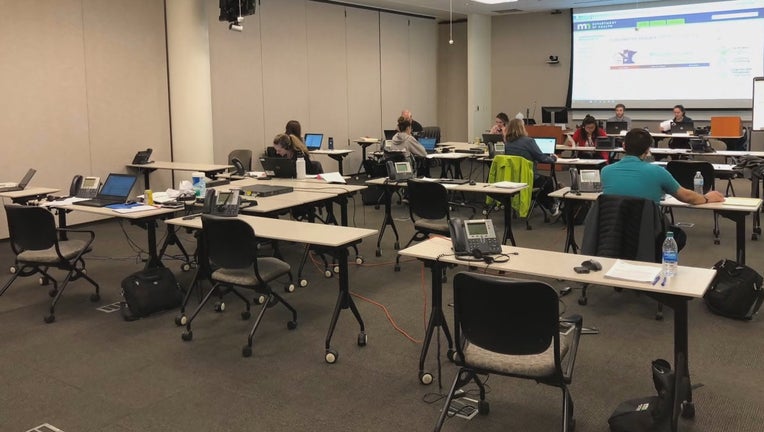Push to train more COVID-19 contact tracers as cases increase in Minnesota

Contact tracers call those who have tested positive for COVID-19 to learn who else they may have come in contact with.
ST. PAUL, Minn. (FOX 9) - As the number of COVID-19 cases go up, so does the need for case investigators and contact tracers – the people in charge of connecting with those who test positive and finding out who else they may have come in contact with.
It’s a part of the fight against the coronavirus that’s taking place behind a computer screen and a phone.

Push to train more COVID-19 contact tracers as cases increase in Minnesota
It is a part of the fight against the coronavirus that’s taking place behind a computer screen and a phone.
“[A COVID-positive person] is then contacted by a case investigator and that case investigator is really designed to both provide them with some information about their isolation for example, and also to gather a lot of information for the case,” said Beth Gyllstrom, a senior research scientist at MDH.
Gyllstrom has been training investigators who are trying to stop the spread of COVID-19 through contact tracing.
“There’s still this community benefit of making sure people really understand if you’ve been exposed how long should they be removing themselves to really try to slow this and contain it,” she said.
Gyllstrom says so far there are 183 investigators trained from MDH and state employees from other departments, who have been re-deployed to help. Another 150 local and tribal public health department staff have also been trained. Now, they’re working to get 800 trained in total, including volunteers from outside organizations.
“They have the experience whether they come from healthcare, whether they come from academic settings where they have a solid grounding in public health or medicine is really where we’re starting,” she said.
As of this week, the training is happening online. It takes about five hours and covers how to do a case interview, contact follow-up as well as data and phone systems training and mock interviews.
“Now that we have an understanding of certain aspects, we can streamline the conversation with the COVID-positive person now and get more and more investigations in a day,” said Jen Plum, an MDH case investigator.
Plum has been pulled from her original position to learn contact tracing. She says this work is part of the key to containment.
“Every time we do that and every time we do that quickly, it helps that contact from potentially spreading it throughout the community,” said Plum.
MDH officials says contact tracers and volunteers have to sign off on the department’s data and privacy policies. Also, parts of the database are restricted to them.

